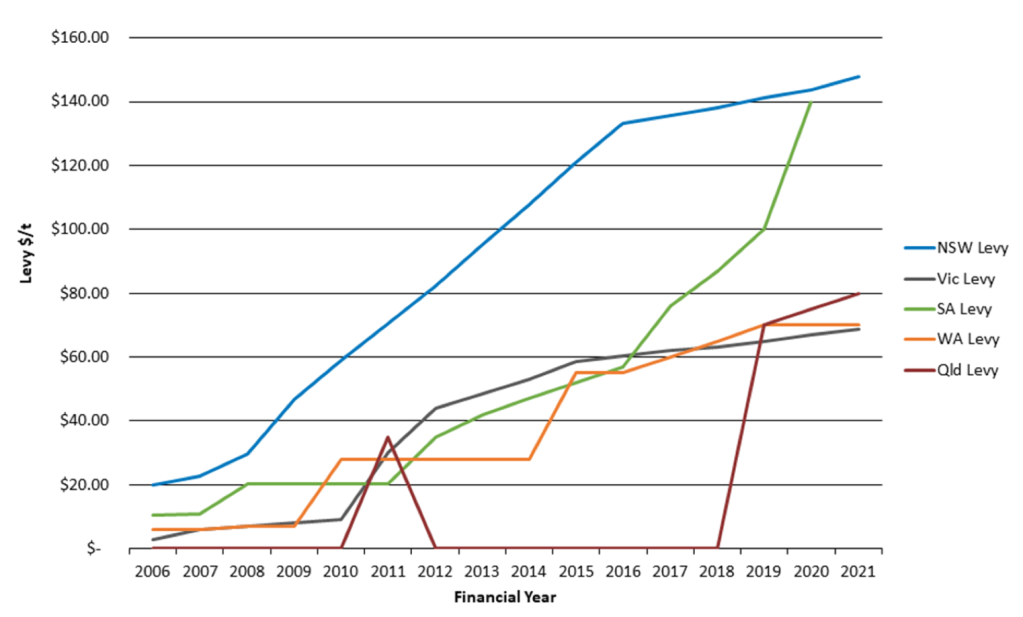MRA submission to the inquiry into Australia’s Waste Management and Recycling Industries
By MRA Consulting Group

In October 2019, the Australian Parliament Standing Committee on Industry, Innovation, Science and Resources adopted an inquiry referred by the Minister for Industry, Science and Technology, the Hon Karen Andrews MP, asking the Committee to inquire into and report on innovative solutions in Australia’s waste management and recycling industries.
MRA believes there are huge jobs, resource and carbon opportunities in recycling and waste management. These opportunities are not being successfully captured under current regulatory and policy arrangements.
Tweet
MRA has made the following submission to the Inquiry into Australia’s Waste Management and Recycling Industries, outlining some of the minimum requirements for waste/recycling reform:
Governance
- Establish MEM (Meeting of Environment Ministers including the Commonwealth) as the key coordination body for waste policy and action; and report annually on progress
- Permanent national and state-based Industry Consultation process
- Agreed National Waste Policy with annual and five yearly targets.
At the State level:

- Waste Governance arrangements that makes someone responsible for waste policy and delivery
- Proper recognition of waste in the Planning System which facilitates infrastructure and protects current assets
- Infrastructure Gap and Needs Analysis; and a plan to fund and approve
- Better resourcing of the EPAs to establish minimum operating standards for all facilities
- Mandatory facility waste reporting and EPA reporting of waste data annually to stakeholders within 12 months of each calendar year
- Mandatory regional waste planning processes for infrastructure
- Levy rebates for bona fide recyclers achieving minimum diversion standards
- Maximise FOGO bin collections for all households (FO for MUDS) as both a resource and a climate change emissions policy
- Minimum statutory landfill management standards (rather than guidelines)
- Regulation and enforcement applied equally to all operators (irrespective of size)
- Annual increases in the levy, at first hypothecated 100% to rural Council infrastructure until minimum environmental standards are achieved and then to achieving the State recycling targets
Policies

- Mandatory National and State Targets for diversion from landfill
- Mutual Recognition Act (where levy liability travels with the waste) to prevent interstate movement and arbitrage
- Establish a coherent national waste policy agenda in consultation with stakeholders for strategic issues including EfW, MWOO, EPR, FOGO, Planning, HHW, CRCs etc.
- National ban on domestic and commercial organics to landfill (similar to Europe)
- Properly document the carbon emissions savings associated with recycling, organics diversion, EfW and significantly fund additional abatement
- GST exemption for bona-fide recyclers
- Significant investment in infrastructure for glass, tyres, plastic and fibre processing prior to export bans.
- A national cost/benefit statement on the economic and environmental benefits of recycling
- An industry development plan which recognises the size and growth of the recycling sector and its ability to generate sustainable green collar jobs.
- ABS agreed data set with mandatory reporting by the States (including local government and industry data)
Markets and Procurement

- Positive Procurement package to buy recycled content material at both the Commonwealth and State levels
- The Commonwealth must mandate EPR arrangements for a priority list of materials (agreed through industry consultation) and delivered to a sensible time frame
- Meaningful and targeted Circular Economy Policy and programs
I refer you to the MRA blog for detailed positions on many of these matters.
Fundamentally, waste management in Australia has lacked strategic direction for too long. Each State has had its own approach to waste with almost no national coordination. MRA welcomes this inquiry and hopes that greater levels of coordination are achieved. In particular the Commonwealth has a key role to play in setting the national direction and speed via the National Waste Policy. That must be revised, reprised and accelerated.



